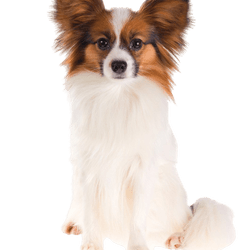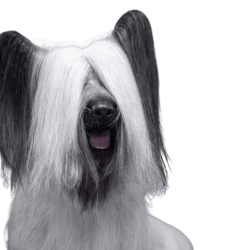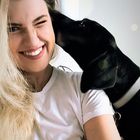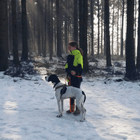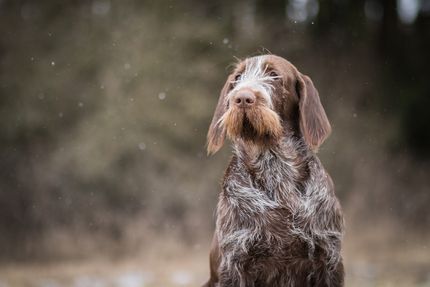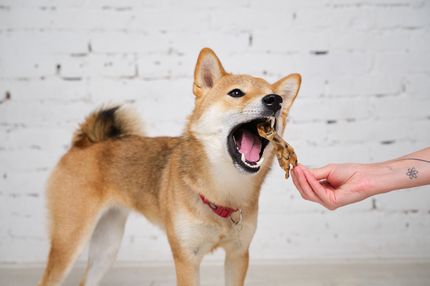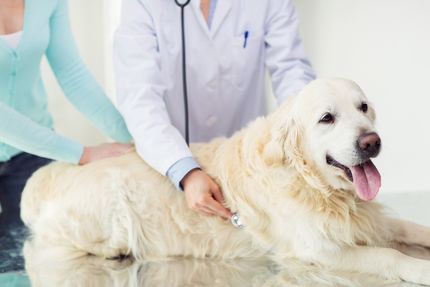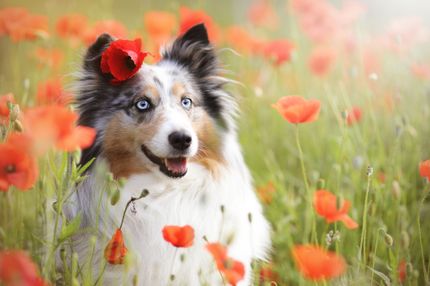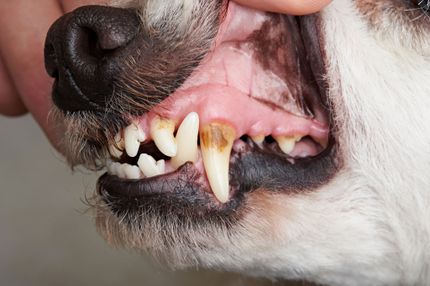Facts & Origin
History and origin
The Skye-Pap is a hybrid dog resulting from the cross between a Papillon and a Skye Terrier. Its roots are in France and Scotland, where its parent breeds originated.
The Papillon, known for its high floppy ears that resemble butterfly wings (Papillon is French for butterfly), was a favorite of the nobility in Renaissance France. The Skye Terrier, on the other hand, is a sturdy and tenacious hunter from Scotland, known for its long, flowing coat.
Who is the Skye suitable for?
Thanks to its adaptable nature, the Skye-Pap is suitable for many different types of households. His friendly and loving nature makes him a great family dog. He can live well in an apartment as long as he gets enough exercise and mental stimulation. The Skye-Pap would also make a good companion for seniors or singles.
However, potential owners should keep in mind that the Skye-Pap will require a certain amount of care due to his parent breeds. With his bright nature and need for interaction and activity, the Skye-Pap is not a good choice for people who have little time or need to leave him alone for extended periods of time.
| Alternate Name | - |
| Origin | France - Scotland |
| Life expectancy | 12 - 15 years |
| Care requirements | low-maintenance - high-maintenance |
| Activity level | average to high - average |
| FCI group | not recognised |
| AKC group | not recognised |
| KC group | not recognised |
More Papillon mixes
More Skye terrier mixes
Attitude, character and temperament of the breed
Characteristics and traits
The Skye-Pap is known for his robust health and zest for life. On the one hand, there is the energy and liveliness of the Papillon, and on the other, the stamina and laid-back nature of the Skye Terrier. The result is an extremely alert, active and loyal companion with a strong will of his own.
At the same time, the Skye is an absolute family pet. He is friendly and outgoing towards people and other animals. Despite his small size, this delightful hybrid displays remarkable alertness and energy.
Attitude and Training
As with any dog, training should begin early. The Skye-Pap responds very well to positive reinforcement and love. Patience and consistency will yield the best results.
As a small to medium sized dog, the Skye-Pap is suited to both city and country living. Although he would love to have his own yard, he can do without as long as he gets enough exercise, activity and affection.
Usage
Care of the Skye-Pap
Grooming a Skye Pap is both physically and mentally demanding. Regular coat care is of utmost importance, as both the Skye Terrier and Papillon are known to have strong, long hair. Regular brushing sessions are necessary to prevent matting and keep the coat healthy.
Another important grooming task is zan hygiene and claw trimming. Skye-Paps are prone to dental problems, so dogs of this breed should receive regular dental checkups and cleanings.
Health of the Skye-Pap
Due to their genetic history, Skye-Paps can have a number of health problems. These can include heart problems, skin diseases, dental problems, and eye diseases. It is therefore important to have regular health checks both at the vet and at home.
Breeding the Skye-Pap
When breeding Skye-Paps, special attention should be paid to health. Breed crosses can provide some health benefits, as they tend to increase genetic diversity and reduce the risk of certain breed-specific health problems. However, breeders should be aware that any cross also carries the risk of inheriting problematic health conditions from both parent breeds.
Thus, it is critical that any breeder focusing on Skye-Paps ensure that both parents have been tested for certain health conditions and are healthy before using them for breeding.
What does this mixed breed look like?
The Skye-Pap has a characteristic appearance, which he inherits from both parents. He is usually small to medium in size.
This mixed breed usually has a beautiful, long and smooth coat that takes on either the colors of the Skye Terrier (black, blue, gray, cream or fawn) or the colors of the Papillon (white with patches of each color).
| Fur length | long |
| Fur | flat coated |
| Ear shape | Standing Ears |
| Tail | rolled up - lang |
| Anatomy | slim, slim |
| Size ♀ | 20 - 30 cm |
| Weight ♀ | 2 - 10 kg |
| Size ♂ | 20 - 30 cm |
| Weight ♂ | 2 - 11 kg |
| Suitable For | - |
Known Diseases
Tartar
If dogs don't get a good food or sugary food, tartar can quickly appear.
Patellar luxation
Patellar luxation is the term used to describe a displacement of the kneecap, which is one of the most common causes of lameness in dogs.
Ureteral ectopy
Ureteral ectopy (also known as ureteral ectopia) is an inherited condition where the ureter (known as the ureter) does not end in the bladder as usual due to a misalignment.
FAQ
-
The cost of keeping varies depending on whether you get a puppy or an older animal, but also on the health of the animal.
-
This hybrid breed is a very active small dog that has excellent guarding ability and a good sense of direction. They are intelligent and playful small animals that love to learn and interact with people without restrictions.
-
Skye-paps require a lot of care and attention. They need to be run regularly to consume their energy and brushed every day to remove excess lumps.
-
The Skye-Pap is a lively and intelligent dog that participates easily in training. When training, you should use positive reinforcement methods, as they are considered to be the most effective. Be patient and reward him for any positive progress.
-
They are prone to some of the same diseases as the two parent breeds, such as eye disease, respiratory disease, heart defects, and respiratory problems. They may also be prone to obesity, luxating patella and digestive tract diseases.
